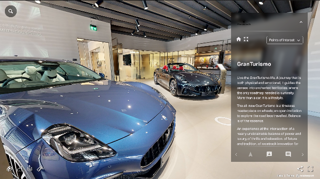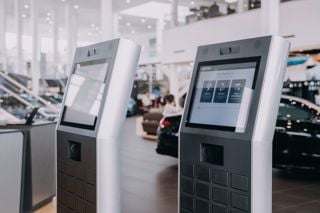The automotive industry has a challenge on its hands, with car sales set to fall next year in the wake of Brexit and falling consumer confidence.
KPMG has pegged back its forecast of three million new car sales in 2017 to 2.5 million, with Euler Hermes expecting a year-on-year fall of 11%.
Protecting market share and boosting average revenue per customer will clearly be critical for manufacturers.
With the difference in vehicle standards tightening, customer service is where the opportunities lie to get ahead of the game.
Of course, this is not breaking any new ground for the sector.
Manufacturers have increasingly adopted a multi-channel approach to customer services as they bid to deliver an improved, more joined-up, experience for their customers.
Webchat has been particularly successful for Groupe Renault UK, for example, becoming the most popular contact option, which now generates almost two thirds of all sales leads.
But while this model will endure, delivering excellent customer service will soon mean more than simply enabling consumers to make contact how and when they like.
In its latest analysis, KPMG Nunwood, the UK’s leading customer experience think tank, found that creating novel, memorable experiences – which give customers emotional peaks, encouraging brand loyalty – is where the future battleground for driving customer value and retention lies.
The introduction of new innovations, from artificial intelligence to virtual reality, will present automotive manufacturers with a real opportunity to take advantage of this.
For example, by harnessing these technologies, a business could take a customer from solving a maintenance or finance query with a customer service agent over video chat, to touring a showroom and then on to a virtual test drive of a new car, all in one seamless interaction with a contact centre.
Being able to personalise the customer journey is a key starting point, but fulfilling this can be difficult given the small amount of data that agents can digest while speaking to customers across any given channel.
Ideally, staff would have access to a comprehensive dashboard, including information on web browsing habits, lifestyle preferences and previous contact, to answer any query in real-time and predict what a particular customer needs.
Cognitive systems, run by artificial intelligence software, are now being trialled to help make this a reality.
Acting as a virtual supervisor, the technology collects and analyses data from every touchpoint to share with agents and recommend actions as they’re speaking to customers over the phone, webchat, video or social media.
For instance, if a customer has previously looked at a specific model online, or demonstrated they are in the market for a large, family car on social media, the software will provide this information to staff and give directions for next steps.
With car showrooms now increasingly digitised and linked up with contact centres, one of these steps could be to take the customer on a virtual guided tour of that vehicle using video chat, while providing them with a function to download design and specification information to take away.
The advances we’re seeing in virtual reality could then take this a stage further.
With access to a headset, the customer service representative would then be able to take the customer from the guided tour of the vehicle to taking a virtual test drive, in the same interaction.
While this won’t provide the customer with exactly the same experience as actually driving the car, it still has the potential to significantly accelerate the sales cycle and decision to purchase.
Working these new innovations into the customer journey will provide efficient, personalised experiences at the touch of a button, whether customers are at their desk at work during their lunch breaks or browsing on their smartphone on their daily commute.
At its core, this technology-driven approach reflects the most basic ingredients of exceptional service – making the customer feel special and doing everything possible to make their experience as rewarding, memorable and stress-free as possible.
Enabling new technology can certainly deliver a more novel, personalised process that will have a marked impact on brand loyalty and customer retention.
Author: Parham Saebi, head of client relations, CRM Solutions at Arvato UK and Ireland


















Login to comment
Comments
No comments have been made yet.